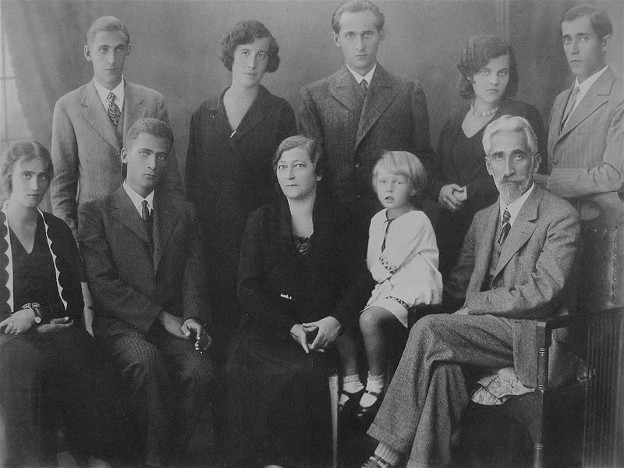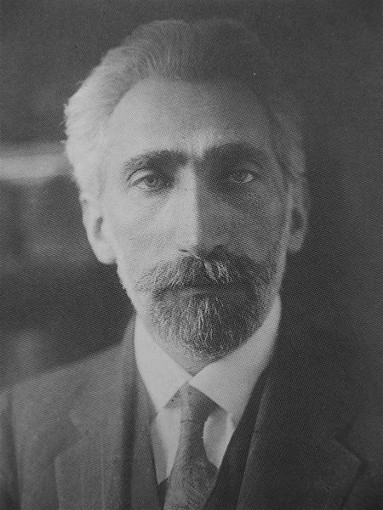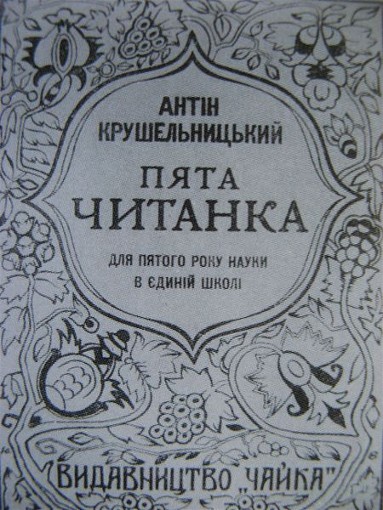Krushelnytsky, Antin
Krushelnytsky, Antin [Крушельницький, Антін; Krušel’nyc’kyj], b 4 August 1878 in Łańcut, Poland, d October or November 1937 on the Solovets Islands. (Photo: Antin Krushelnytsky.) Writer, educator, journalist; political and civic figure. As a student he was associated closely with the monthly Moloda Ukraïna and helped Ivan Franko in editing Literaturno-naukovyi vistnyk. Later, he worked as a secondary-school teacher and principal, and played a prominent role in the Ukrainian Radical party. In 1919 he served as minister of education in Borys Martos's cabinet under the Directory of the Ukrainian National Republic. After the First World War he worked as an editor at the Chaika publishing house in Vienna, which specialized in Ukrainian textbooks and translations of world classics. Returning to Galicia in 1925, he could not obtain a teaching position. From 1929 to 1933 he edited the pro-Soviet journals Novi shliakhy and Krytyka. Persecuted and repeatedly arrested by Polish authorities, he immigrated with his family to the Ukrainian Soviet Socialist Republic in 1934. Soon, all of them were arrested: Antin and his wife, Mariia, were sent to concentration camps, while their sons Ivan Krushelnytsky and Taras Krushelnytsky were executed. Antin Krushelnytsky died in prison and was posthumously ‘rehabilitated’ after Joseph Stalin's death.
As a prose writer Krushelnytsky was influenced by Western European modernism. His rich literary legacy includes collections of short stories such as Proletari (Proletarians, 1899) and Svitla i tini (Lights and Shadows, 1900); dramas such as Semchyshyny (The Semchyshyns, 1900), Cholovik chesti (Man of Honor, 1904), Artystka (Actress, 1901); the comedy Orly (Eagles, 1906); novels such as Rubaiut’ lis (They Are Cutting the Forest, 1914), Homin Halyts’koï zemli (Echo of the Galician Land, 1918–19), Iak promovyt’ zemlia (When the Land Will Speak, 1920), Iak pryhorne zemlia (When the Land Will Embrace, 1920), and Budennyi khlib (Daily Bread, 1920); literary surveys and criticism; school readers such as Vybir z ukraïns’koho narodnoho pys’menstva (Selections from Ukrainian Folk Literature, 2 vols, 1918, 1922); and translations.
Arkadii Zhukovsky
[This article originally appeared in the Encyclopedia of Ukraine, vol. 2 (1988).]


